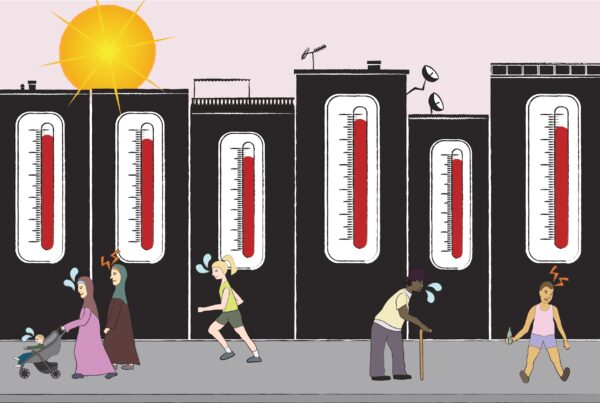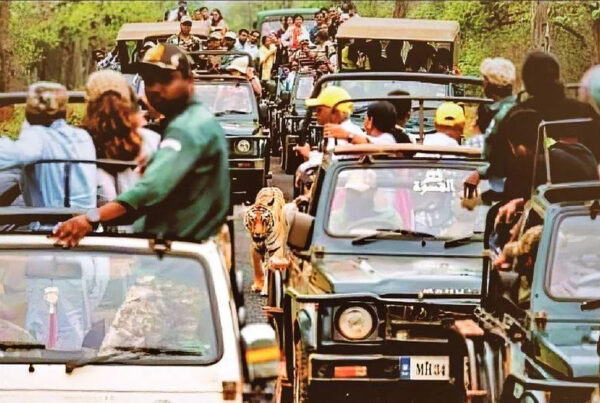By Lucia Arguelles Ramos.
The success of the film Alcarrás has to do with a widespread imaginary that romanticizes family farming but at the same time normalizes its disappearance.
At this time of high oil prices and of the shameful reality of Europe profiteering from the invasion of Putin’s regime, calls for an ecological transition are once again activated. But the material transformation for the so-called “green new deals” or green pacts also generates some impacts. These are, for example, noticed and felt at places where lithium is extracted for making batteries, or where renewable energy facilities are installed. These new frontiers of material and energy extraction are called “sacrifice zones” in the academic literature.
In the film Alcarrás, the director Clara Simón narrates the story of one of these sacrificed areas. A family farm in Lleida (Catalunya, Spain) where there is a problem (not a dilemma) when the owners of the land want to exchange peaches for solar panels. This has an impact on the family who farms the land, whose life and sorrows we see narrated in the movie.

Caption from the Alcarras movie. Credit: AVALON
Clara Simón, the director, declared before the premiere that she was intrigued by the film reception among the people she portrays in the film. My partner is a farmer in Catalunya and does not want to go watch Alcarrás. He says that he already knows that story. He knows well the suffering of the farmers, their struggle for the land, and looks reluctantly at a film that portrays these dynamics. Everyone likes to see farmers suffer, he says. I don’t know if he’s right, but I think it might be true that the great reception of the film by the broader European society (the film was awarded the Golden Bear for Best Film at the Berlinale 2022 film festival) probably has to do with a widespread imaginary that romanticizes family farming but at the same time normalizes its disappearance. The weak political debate generated around the plot of the film (the expropriation of a stone-fruit field managed by the Solé family for 80 years, in order to install solar panels) is an example of this.
The mayor of my small town at the Maresme coastal area, with whom I coincided in the screening of Alcarrás, did seem to like the movie. In this region of the province of Barcelona, the land that we cultivate (us, and many of the few farmers who survive here) hangs by a very fine thread. This thread is held at one end by local authorities, such as the mayor, and at the other end by the land owner who wants to make this land developable (I wonder if he has watched Alcarrás too).
I also wonder if people leave the cinema thinking that the portrayed story is also true, like the actors-non-actors (about which so much has been said on media). What will people do after seeing the movie? What will the mayor and other politicians do? Will they praise the beauty of the film and its photography and its casting? Will they try to protect with more care the little arable land that remains in their municipalities, their counties, their provinces?

Caption from the Alcarras movie. Credit: AVALON
I did like the movie too. I can’t explain why. I read the reviews: adorable, simple, full control of the camera and editing, simple and elemental beauty, etc. I agree. However, I would like the film to mobilise comments beyond the outstanding career awaiting for the director, the photography, and the wonder of the casting of actors-non-actors. Maybe it’s just me, and my partner, but there’s something weird about fetishising the beauty of something so contentious, and politically sensitive.
Alcarrás is a small production that portrays the customs and sorrows of farmers, and the joy of simple, communitarian, village life. Above all, it is a portrait of the precarious situation of the rural economies, and how that is experienced by people. And it is precisely this point that has been less commented in the various interventions that the film has unleashed in the media of all kinds.
By chance, the film premiere in April 2022, coincided with the publication of the 2020 Spanish agrarian census, the first in 11 years. The census put numbers to the reality of the portrayed Solé family. In other words, Clara Simón illustrates what the agrarian census shows in statistics – in numbers without faces or voices. Since 2009 there is a decrease of more than 70,000 farms, which represents a loss of 7.57%. This decrease is of 50% since 1999. This figure does not translate into a decrease in arable land, which remains constant. What this means is a process of concentration: few have more. Small and medium-sized farmers retire or quit and give way to large agro-industrial conglomerates that manage large extensions of land.
Solar panels, windmills, metropolitan and rural urbanization, airports, or highways, affect those who are less able to defend themselves. It is also the small and medium-sized ones that are worst off from international trade policies and low prices that have pushed towards the intensification of agriculture, overproduction, and the collapse of food prices and farm income. Clara Simón knows all this, and includes in the film a well-known scene in Spain: farmers’ protesting by throwing away fruit that would otherwise be sold below its production cost.
In addition, employment in agriculture has decreased by 7.7%, increasing the regular hiring of personnel to the detriment of family labor. I remember another scene repeated in the film, Quimet’s (the farmer-father figure) determination with his son: “Son, study, there is no future here, you will not earn a living working in agriculture.”
This economic tension, this struggle to survive, permeates the members of the family and their relationships (the grandfather flooded with sadness, the teenage daughter who perceives the tension at home, the fights between siblings). And that is precisely what Alcarrás shows in a special way. This emotionally and economically tense situation for farmers, moreover, is related to the precariousness of immigrant workers in the countryside. A reality that the film rather leaves aside, but which is the central axis of a documentary filmed not too far away, and not too long ago, titled El Cost de La Fruita (The Cost of Fruit).
The end of Alcarrás is not surprising. It does not have a happy end. The family had been warned. Will the same thing happen to us?

** This article was originally published in Spanish in eldiario.es.
Lucia Argüelles is a researcher at the Universitat Oberta de Catalunya. Her current work examines the political ecology of weeds in agriculture, including how weeds are imbricated with broader agrarian processes such as pesticide use or agriculture digitalization.






One Comment